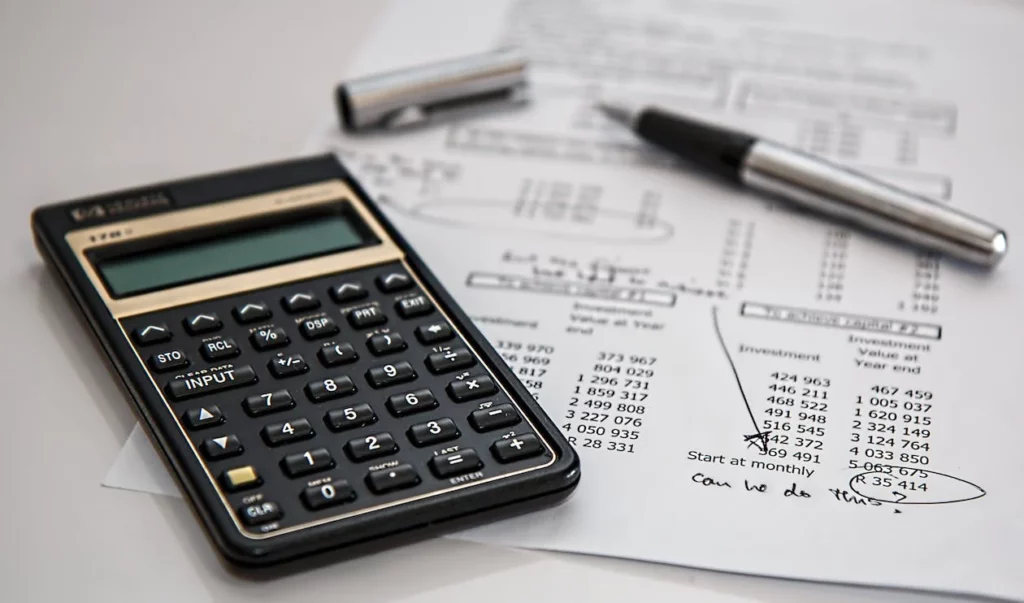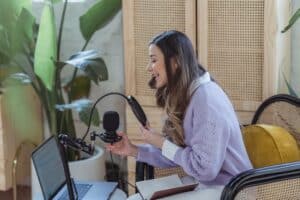Podcasting is a great way to express yourself, get your worldview out there, entertain people, and wax lyrical about your favorite subjects. And, with 41% of the US population listening to a podcast on a monthly basis, you’re sure to find an audience. Best of all, you don’t need to break the bank to do it. It’s possible to produce a standout podcast on a very tight budget. But how do you work out what that budget should be?
There are few things more frustrating than having to put your podcast on hiatus just as things are getting good because your podcast budget implodes. So even though budgeting may be boring, it’s worth planning in advance.
In this article, we walk you through the basics of figuring out your podcast budget. Whether you’re running your podcast from a fully-equipped recording studio or your phone in your living room, our tips will help you set a budget that works for you.
If you have an established podcast, don’t leave just yet! Budgets aren’t static so you should regularly re-evaluate them. This article will help you to figure out your podcast budget for the coming year.
Start by Establishing Your Podcasting Goals
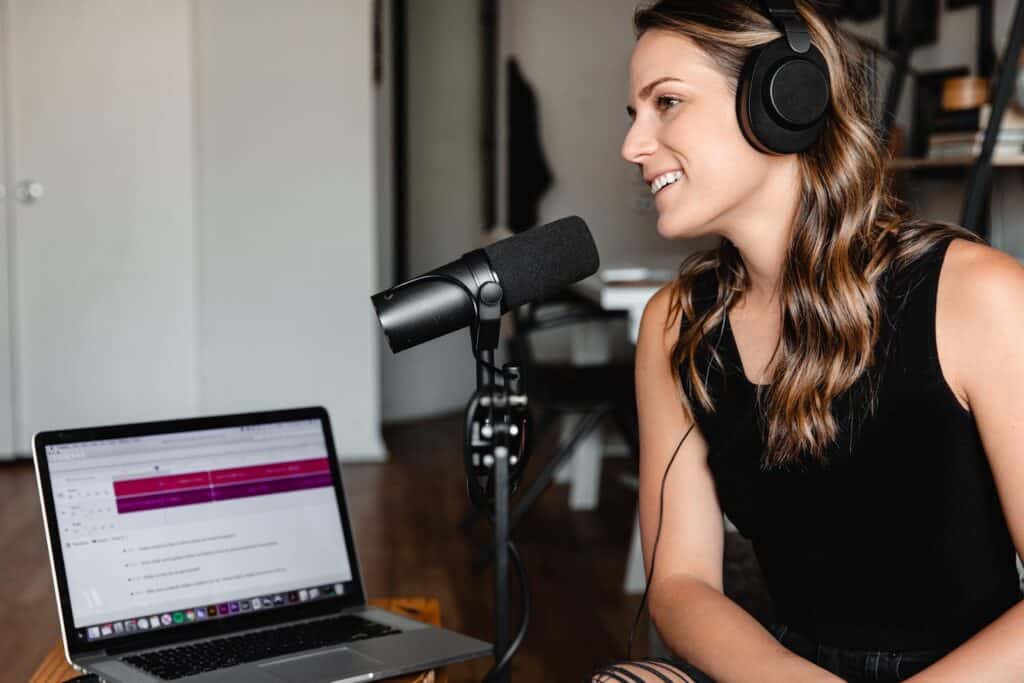
Before crunching the numbers, work out what you want to achieve with your podcast. What are your goals and how could they impact your budget?
Are you podcasting for family and friends or do you want to reach a wider audience? What is your subject matter and how do you plan to get it across?
Are you regularly bringing guests onto your show, and if so how will you be recording them? Keep in mind that you will need to pay for any permissions. To play copyrighted music or read out extracts from books, you may need to purchase licenses from publishers or record labels.
It’s important to establish your goals before getting down to the numbers-work of a budget, because your goals can reveal where you need to spend and where you can save.
For example, if your goal is to run a chatty, informal podcast for friends and family, you may not need sophisticated podcast equipment. You can record and edit your podcast on your phone and muffle ambient sound with something as simple as a pile of pillows.
On the other hand, if sound quality is important for your format or subject matter, you may need to invest in a good microphone, kit out an area in your house as a recording studio, or even rent recording time at a professional studio.
Remember, if you plan to expand and improve your podcasting equipment over time, that is a totally valid goal. Lots of podcasters start small and grow as they gain more listeners, attract sponsors, and monetization kicks in. But it’s worth factoring any ambitions to grow so that you can put aside money in your budget for upgrades.
Think About Your Podcasting Costs
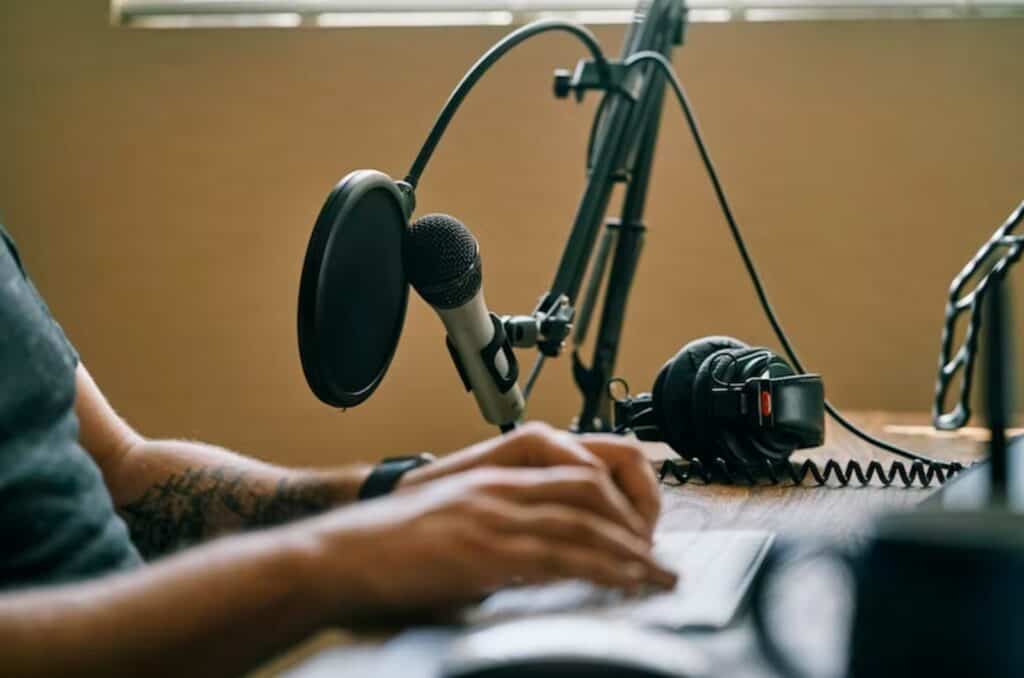
Now that you know roughly what you’re aiming for, it’s time to think about what you’ll need to make that dream come true. As we said above, if you don’t have a lot right now but have ambitions to improve, that’s not a problem. But it is worth factoring the need to save for upgrades into your budget.
Common podcasting costs include:
- Recording equipment: This can be as simple as a smartphone or as sophisticated as a full recording suite. In the middle, there are a huge variety of DSLR microphones available. The goals you established earlier will help you to determine how much money you should invest in equipment.
- Time: Time is money and making a podcast takes time! Are you planning to run your podcast in your spare time? Can your day job sustain your podcasting goals? Or would you like to become a full-time podcaster? If the latter, you need to figure out how you’re going to make the podcast pay your wage.
- Recording space: While it’s theoretically possible to record a podcast from anywhere using your phone, the sound quality will be better if you have a dedicated space that muffles ambient sound. This isn’t hard to achieve—even recording under your duvet can cut out a lot of external noise. But if your home or office is particularly noisy, you may need to consider finding a quiet, dedicated space free from distractions and interruptions—for example, a podcasting shed.
- Hosting subscriptions: Keep in mind that you may need to pay for your podcast to feature on certain platforms.
- Production team: Podcast production teams (ike Castos Productions) can help you to create high-quality, sophisticated podcasts on a budget. It’s worth hiring a production team if you have the option. The right producers can really give your podcast an edge.
- Editing software: There are some fantastic podcast editing tools out there that are easy to use, but they rarely come for free. It’s always worth paying a bit extra for decent editing software if you can.
- Headphones and a computer: Simply put, you need to be able to edit your podcast and listen to the audio. It is possible to edit a podcast on a phone or tablet, but a computer with plenty of storage is a better option.
- Additional equipment: If you’re planning to record on the road, you may also want to consider things like shock mounts, mic booms, and cables to help you get the best sound quality even in the middle of nowhere.
- Permissions: These could include everything from music and sound effects to the artwork you use on your podcast cover.
As is usually the case, there is a huge range of prices. You can record and produce your podcast for just a few dollars or you can go all-out and invest in the most expensive equipment out there. It depends on what your goals are and what resources are available to you.
Running Your Podcast as a Business
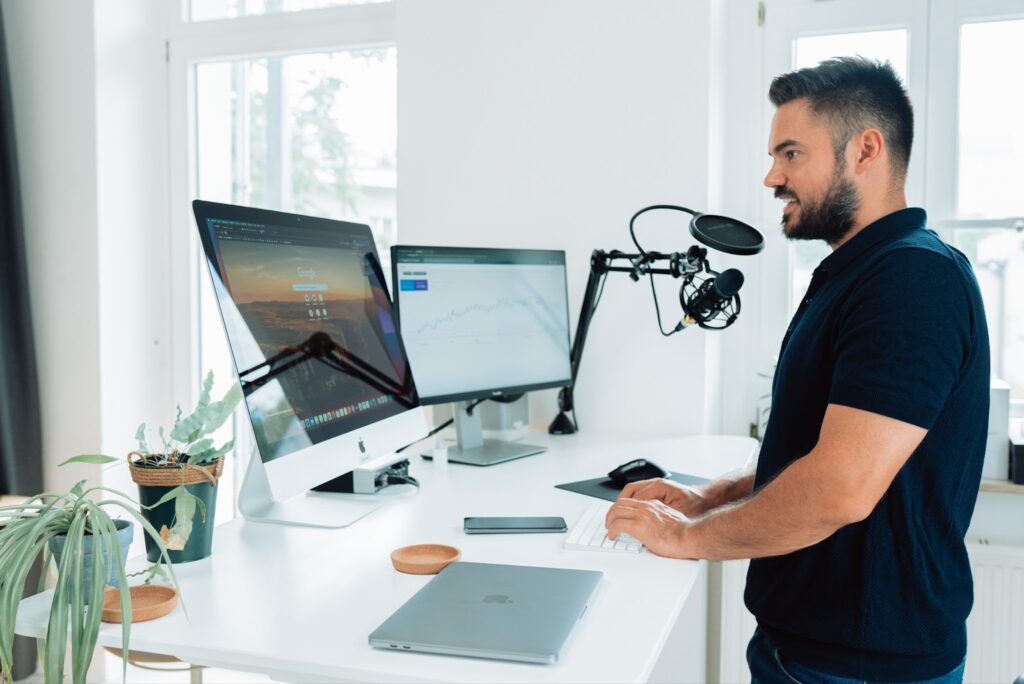
If you plan to make money from your podcast, you will have a few more costs to consider.
Advertising
It’s one thing to record a podcast. But as a business, you need to think about how you’re going to reel in those audiences and make your show more attractive to platforms, advertisers, and partners. There are more than two million active podcasts so you need to do everything you can to make yours stand out. Factor advertising costs into your budget, whether that’s promotions on other shows, traditional marketing, or paid social media ads.
Digital marketing
As with most businesses today, you will need a strong digital presence to promote your podcast if you’re running it as a business. Consider setting up profiles on the major social media platforms like TikTok to promote your podcast and update these pages regularly. You can do this yourself if you have the time or hire someone to curate your social content.
In addition, a podcast website is a valuable way to promote new episodes when they’re released as well as share or upsell additional content. You could allow your audience to access your podcast via your website, like Sage does with its Sound Advice podcast on its Making Tax Digital page. This is particularly effective if you are using your podcast as a method to promote your business, connect with your customers, and establish yourself as a leading authority in your chosen niche.
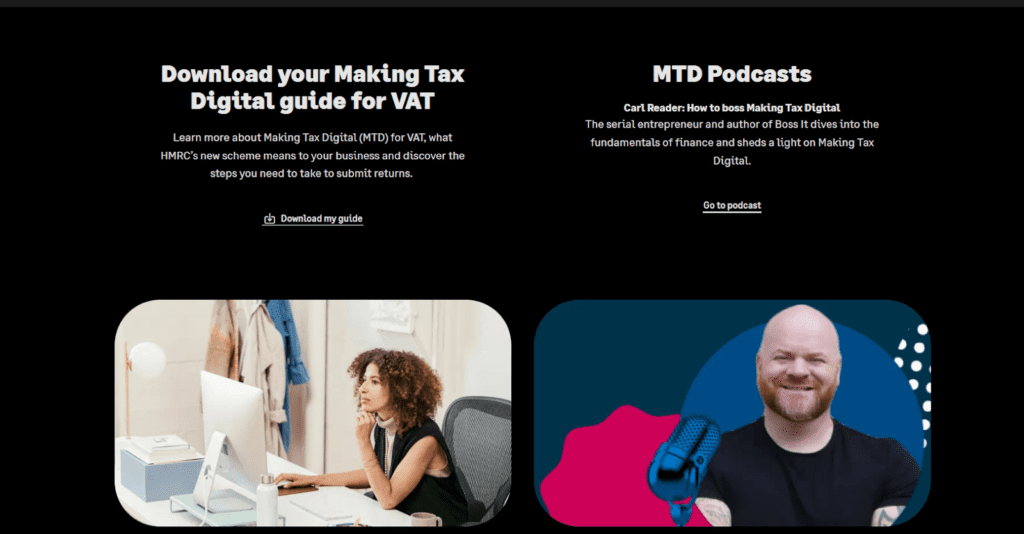
Staffing
While it’s possible to run a podcast as a business by yourself, you may want to bring on board people with specific skills—from producers to researchers and editors. While a lot of people provide these services on a voluntary basis, if your podcast starts making money it’s only fair to start paying everyone who helps to make your podcasting vision a reality.
Accounting
Of course, once you do start making money, you will have to declare earnings to the tax office. To streamline the process, it’s worth investing in accounting software for small business management. This takes the stress out of submitting tax returns. But it also makes it easier to file invoices and control cash flow so you can concentrate on growing your podcast business while sticking to your budget.
Additionally, integrating Invoice Templates for Google Docs into your accounting software can further simplify the invoicing process, allowing you to create professional invoices quickly and efficiently.
There is No “One Size Fits All” Podcast Budget

It is possible to run a podcast on a shoestring or spend thousands on expensive equipment and ongoing costs. Essentially, there is definitely no one-size-fits-all model for budgeting! Setting the right budget depends on your podcasting goals.
Figuring out what you want to achieve is the first and most crucial step in building your budget. By identifying what is important enough to spend a bit more on and where you can cut back, you’ll be able to create a budget that you can stick to.
Of course, the dream for many podcasters is for their podcast to start making money—maybe even enough to give up the day job! But a profit-making podcast comes with its own budget challenges, from marketing and hiring additional team members to managing your accounts.
Remember, you don’t have to break the bank to get really effective equipment and valuable services. Investing in accounting software or hiring services from a production team like Castos ensure your podcast business remains professional at a reasonable price.
What’s more, it’s often worth paying for services like these, as it can help you reach wider audiences, attract advertisers, and generally boost your podcast’s performance. Before you know it, you could have the profitable podcast of your dreams.
